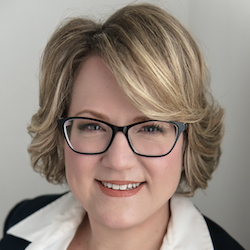
Legislation being considered in New York state and New York City significantly would cap security deposits for renters — and could portend future actions in other cities and states. Although aimed at addressing the needs of consumers and affordability of traditional rental housing, these proposals inadvertently may affect retirement communities that require payment of an initial entrance fee to defray the costs of these living models.
About half of U.S. states limit security deposit amounts, with each setting its own limit and other criteria. In states that cap security deposits, the amount can vary from as little as two weeks of rent to as much as three months of rent. If your state does not limit deposits already, it could decide to make a move that will affect senior living communities in your state in the future.
New York’s proposal would limit security deposits to two months of rent, counting the first month’s rent. With no definition of security deposit, the proposal is overly broad, encompassing any payment, fee or charge imposed to execute a lease agreement.
The New York City proposals would affect both brokers’ fees and security deposits. The legislation caps brokers’ fees at one month’s rent instead of the standard 12% to 15% of annual rent. Security deposits would be limited to one month, and renters could spread the payment out over six months. Landlords also would be required to return deposits within 60 days of lease termination.
These proposals reveal a limited view and knowledge of senior housing models and the magnitude of services or up-front financial contribution required to sustain these robust, meaningful and in-demand residential communities. LeadingAge New York has been at the forefront of educating lawmakers on the services offered in senior communities, the overwhelming need for similar communities given the booming senior population, and how these proposals would affect future development and operation.
Senior housing offers privacy and independent living in buildings that are safe and well-maintained and that foster a sense of community among their residents. Many buildings are equipped with 24-hour emergency call systems and have staff members on site to offer meals, transportation, housekeeping, social activities, counseling, recreational programs, daily visits or telephone reassurances. These communities give older adults the opportunity to unburden themselves of the challenges of being homeowners and to use their assets to cover an entrance fee and monthly fees.
Courts around the country have ruled that these service-enriched models are not subject to residential property laws. An expansive landlord-tenant law such as those being proposed in New York, however, could prove problematic, especially in states without legal precedent.
It is important that we protect these models from the proposed security deposit legislation and ensure that seniors continue to have access to this innovative type of housing — one that, I believe, inherently is different from the target of these legislative proposals. Other states that do not have these limits may be facing this issue sooner rather than later.


